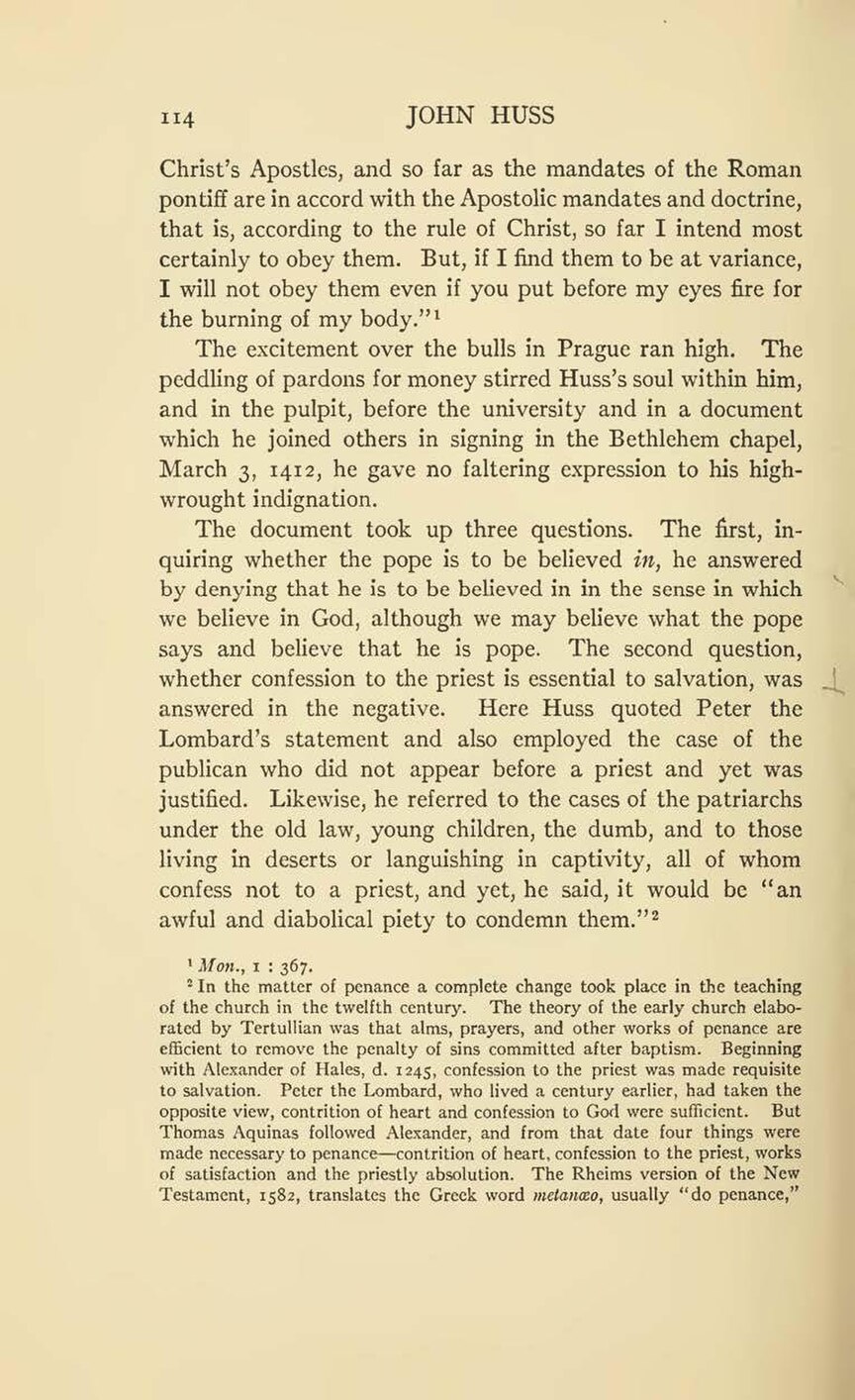Christ’s Apostles, and so far as the mandates of the Roman pontiff are in accord with the Apostolic mandates and doctrine, that is, according to the rule of Christ, so far I intend most certainly to obey them. But, if I find them to be at variance, I will not obey them even if you put before my eyes fire for the burning of my body.”[1]
The excitement over the bulls in Prague ran high. The peddling of pardons for money stirred Huss’s soul within him, and in the pulpit, before the university and in a document which he joined others in signing in the Bethlehem chapel, March 3, 1412, he gave no faltering expression to his highwrought indignation.
The document took up three questions. The first, inquiring whether the pope is to be believed in, he answered by denying that he is to be believed in in the sense in which we believe in God, although we may believe what the pope says and believe that he is pope. The second question, whether confession to the priest is essential to salvation, was answered in the negative. Here Huss quoted Peter the Lombard’s statement and also employed the case of the publican who did not appear before a priest and yet was justified. Likewise, he referred to the cases of the patriarchs under the old law, young children, the dumb, and to those living in deserts or languishing in captivity, all of whom confess not to a priest, and yet, he said, it would be “an awful and diabolical piety to condemn them.”[2]
- ↑ Mon., 1: 367.
- ↑ In the matter of penance a complete change took place in the teaching of the church in the twelfth century. The theory of the early church elaborated by Tertullian was that alms, prayers, and other works of penance are efficient to remove the penalty of sins committed after baptism. Beginning with Alexander of Hales, d. 1245, confession to the priest was made requisite to salvation. Peter the Lombard, who lived a century earlier, had taken the opposite view, contrition of heart and confession to God were sufficient. But Thomas Aquinas followed Alexander, and from that date four things were made necessary to penance—contrition of heart, confession to the priest, works of satisfaction and the priestly absolution. The Rheims version of the New Testament, 1582, translates the Greek word metanœo, usually “do penance,”
